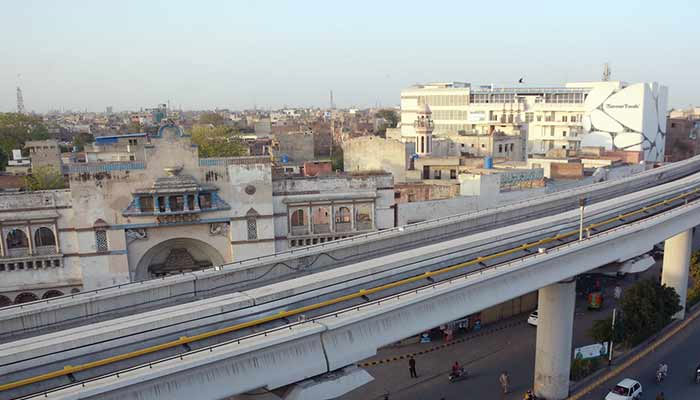Finance ministry proposes Rs700bn PSDP for next year
The planning ministry suggests Rs200bn for public-private partnership
ISLAMABAD: Ministry of Finance has proposed an Indicative Budget Ceiling for the Public Sector Development Programme (PSDP) of Rs 700 billion for the upcoming budget 2023-24.
It has also decided to slap a ban on incorporating unapproved new projects and provincial projects into the PSDP for the next budget. The Planning Ministry is also proposing an allocation of Rs200 billion through Public Private Partnership (P3) for the next budget.
Despite this background, the government continues to dole out funds for the achievement of Sustainable Development Goals (SDGs) for Parliamentarians for the current financial year. The Cabinet Division has so far utilized Rs93 billion for all schemes of Parliamentarians for the SDGs programme. Yet another summary has been moved for the allocation of an additional Rs20 billion for the SDGs Achievement Programme for the current fiscal year, making the total allocation up to Rs113 billion till the end of June 2023.
The government has started preparation for the next budget but so far, the Budget Strategy Paper (BSP) could not be tabled before the federal cabinet. “Ministry of Finance has indicated the IBC to the tune of Rs700 billion for the upcoming PSDP for the next budget whereby no new unapproved development schemes will be inserted into PSDP for the upcoming budget” top official sources confirmed while talking to The News here on Tuesday. Now the Annual Plan Coordination Committee (APCC) is scheduled to meet on May 23, 2023, for recommending macroeconomic and development plans for the next budget 2023-24. Then the National Economic Council (NEC) is expected to meet under the Chairmanship of Prime Minister Shehbaz Sharif in the first week of June 2023.
Federal Secretary Ministry of Planning Syed Zafar Ali Shah who had returned from abroad recently chaired a maiden meeting on the preparation of the development budget for the next financial year in which the Finance Ministry indicated a budget ceiling of Rs 700 billion. “However, Secretary Planning has directed the authorities to devise a mechanism to utilize PSDP funding up to Rs 800 to Rs 900 billion for the next budget,” said the official sources.
The federal government has so far utilized Rs 380 billion on different schemes of the PSDP out of the total released funding of Rs 673 billion. The Planning Ministry has asked the Finance Division to sanction the released amount of funding as early as possible. During the meeting, it was also pointed out that the government allocated more funds for National Highway Authority (NHA) for the outgoing financial year which remained unutilized up to the desired mark. Now the government would allocate more funds for other sectors in the coming budget.
To secure political support from parties in the ruling Pakistan Democratic Movement (PDM), the government increased the funding for the controversial Sustainable Development Goals Programme for Parliamentarians from Rs70 billion to Rs90 billion during the current fiscal year 2022-23. The sanction for SAP funding stood at Rs87.198 billion until April 14, 2023, with Rs49.856 billion already spent on different schemes. This indicates that almost 55 percent of expenditures were already incurred against the total allocated amount for the current fiscal year. During a recent steering committee meeting, it was proposed that electricity transformers should be installed by respective power distribution companies in their areas after the federal power secretary refused to take responsibility. This proposal was deferred for the time being. These programmes are coming under increasing criticism for lack of proper evaluation mechanisms and effective monitoring to ensure transparent utilisation of funds.
-
 'A Very Special Visitor' Meets Queen Camilla At Clarence House
'A Very Special Visitor' Meets Queen Camilla At Clarence House -
 Jodie Turner Smith Shares One Strict Rule She Follows As A Mom
Jodie Turner Smith Shares One Strict Rule She Follows As A Mom -
 Hailey Bieber Reveals KEY To Balancing Motherhood With Career
Hailey Bieber Reveals KEY To Balancing Motherhood With Career -
 Photo Of Jay-Z, Other Prominent Figures With Jeffrey Epstein Proven To Be Fake
Photo Of Jay-Z, Other Prominent Figures With Jeffrey Epstein Proven To Be Fake -
 Hillary Clinton's Munich Train Video Sparks Conspiracy Theories
Hillary Clinton's Munich Train Video Sparks Conspiracy Theories -
 Fans Slam Talk Show Host For 'cringe' Behavior In Chris Hemsworth Interview
Fans Slam Talk Show Host For 'cringe' Behavior In Chris Hemsworth Interview -
 Woman Jailed Over False 'crime In Space' Claim Against NASA Astronaut
Woman Jailed Over False 'crime In Space' Claim Against NASA Astronaut -
 James Van Der Beek’s Close Pal Reveals Family's Dire Need Of Donations
James Van Der Beek’s Close Pal Reveals Family's Dire Need Of Donations -
 Prince William And Harry's Cousins Attend 'Wuthering Heights' Event
Prince William And Harry's Cousins Attend 'Wuthering Heights' Event -
 Hailey Bieber Turns Heads Just Hours After Major Business Win
Hailey Bieber Turns Heads Just Hours After Major Business Win -
 King Charles' Andrew Decision Labelled 'long Overdue'
King Charles' Andrew Decision Labelled 'long Overdue' -
 Timothee Chalamet 'forever Indebted' To Fan Over Kind Gesture
Timothee Chalamet 'forever Indebted' To Fan Over Kind Gesture -
 Columbia University Sacks Staff Over Epstein Partner's ‘backdoor’ Admission
Columbia University Sacks Staff Over Epstein Partner's ‘backdoor’ Admission -
 Ozzy Osbourne's Family Struggles Behind Closed Doors
Ozzy Osbourne's Family Struggles Behind Closed Doors -
 Dua Lipa Claims Long-distance Relationship 'never Stops Being Hard'
Dua Lipa Claims Long-distance Relationship 'never Stops Being Hard' -
 BTS Moments Of Taylor Swift's 'Opalite' Music Video Unvieled: See Photos
BTS Moments Of Taylor Swift's 'Opalite' Music Video Unvieled: See Photos




